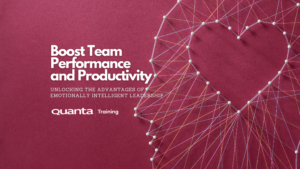Mastering Agile Project Management Principles and Practices
This course offers a thorough introduction to AgilePM®, aligned with Version 3 of the framework. It is designed to provide participants with a solid understanding of the key principles, processes, and roles required for successful Agile project delivery. The course also includes a certification exam to validate the ability to apply AgilePM practices in practical, real-world situations.Book Your Course
Start Date
Venue
Availability
Course confirmed - Guaranteed to run
Course Full/Limited availability
Price shown excluding VAT.
Book a Private Event
If you require the content of this event tailored or have around 7 or more people to train it maybe better for you to host a Private Event, please get in touch to discuss this.
Get in touchDescription
Who is this course for
This course is for:
- Project managers looking to adopt Agile methodologies.
- Business professionals involved in project delivery.
- Scrum Masters and Agile team members seeking structured Agile frameworks.
- IT and non-IT professionals managing Agile projects.
- Individuals aiming for AgilePM® Foundation certification.
Purpose of the course
The AgilePM® Foundation course equips professionals with the knowledge and skills to apply Agile project management techniques effectively. It introduces a structured yet adaptable approach that improves project outcomes through collaboration, flexibility, and iterative delivery. The course also prepares participants for the AgilePM® Foundation exam and serves as a stepping stone toward advanced AgilePM certifications.
You will learn how to
- Understand AgilePM principles, philosophy, and how it compares to traditional project management.
- Describe the AgilePM project lifecycle, roles, and iterative delivery approaches.
- Apply Agile collaboration, communication, and stakeholder engagement strategies.
- Manage Agile requirements using user stories, acceptance criteria, and MoSCoW prioritisation.
- Use Agile estimation techniques, velocity planning, and change management approaches.
- Implement Agile planning, governance, risk management, and compliance strategies.
- Track and control project progress using Agile metrics and reporting techniques.
Prerequisites
There are no pre-requisites for this course. Delegates new to project management will learn a great deal about how to manage projects. Existing project managers, or others involved in project management will learn a new way of looking at the project lifecycle.Benefits for you as an individual
This course builds a strong foundation in Agile principles and practices, enabling you to strengthen your project management skills using a proven Agile framework. Earning the AgilePM certification enhances your career prospects and equips you with the capabilities to manage projects effectively in today’s VUCA (Volatile, Uncertain, Complex, and Ambiguous) environment. You’ll gain practical skills in iterative development, team collaboration, and stakeholder engagement—key competencies for successfully delivering Agile projects.
Benefits for your organisation
Adopting AgilePM best practices can help your organisation boost project success rates, enhance business agility, and respond more effectively to evolving market demands. Improved collaboration and communication among teams and stakeholders contribute to stronger project outcomes, while AgilePM principles support better risk management and governance. Promoting a culture of continuous improvement and iterative development also drives long-term success and innovation.
Introduction to AgilePM
- Agile Business Consortium and APMG International
- Certification process and examination details
- Key AgilePM principles and philosophy
AgilePM Fundamentals
- Business agility and Agile values
- Agile vs. traditional project management
- Understanding VUCA and the need for agility
Individuals and Interactions
- Agile leadership and team dynamics
- Effective collaboration and stakeholder engagement
- Roles and responsibilities in Agile projects
Collaboration and Communication
- Agile communication strategies
- Agile workshops and facilitated discussions
- Transparency and continuous feedback
Project Process and Lifecycle
- AgilePM project framework and lifecycle
- Stages: Feasibility, Foundations, Evolutionary Development, Deployment, and Post-Project
- Incremental and iterative delivery approaches
Defining and Organising Requirements
- Agile requirements management
- User stories and acceptance criteria
- MoSCoW prioritization technique
Estimating and Prioritising Work
- Agile estimation techniques (Story Points, Planning Poker)
- Velocity and commitment-based planning
- Managing change in Agile projects
Planning and Control
- Agile planning horizons (Project, Tranche, Sprint)
- Managing dependencies and cross-team collaboration
- Sprint reviews, burn-down charts, and control mechanisms
Governance and Risk Management
- Balancing Agile flexibility with governance requirements
- Agile risk management strategies
- AgilePM principles for regulatory compliance
Exam Preparation
- Sample questions and practice exercises
- Exam strategies and tips
- Certification process and next steps
Additional Exam Information
- 40 minute
- Closed book
- Multiple choice
- Pass mark - 60%
- Taken on Day 3 of the course
Pre-Coursework
Approximately 3 hours of pre-course work is recommended which will be made available on Quanta Learn.Please note: there will be between an 1-1 ½ hours of homework each evening of the course, such as further reading or working though sample exam papers.
Get Started
Forget trawling through endless course catalogues – Find the training that’s right for you
Learn MoreLatest from our blog
Kanban and Agile: Bridging the Gap
Kanban and Agile: Bridging the Gap Quanta’s Kanban University Certified Trainer Steve Church explores the way in which Agile and…
Read More
How a Ballerina could move into Cybersecurity
Jason Ford, Quanta Cybersecurity and IT Trainer talks about the limitations in Cybersecurity Training courses. Jason discusses a safe and…
Read More
Boost Team Performance and Productivity: Unlocking the Advantages of Emotionally Intelligent Leadership
Quanta People Development and Leadership Trainer, Giles Collins outlines the key elements of Emotionally Intelligent Leadership and how it impacts…
Read More





